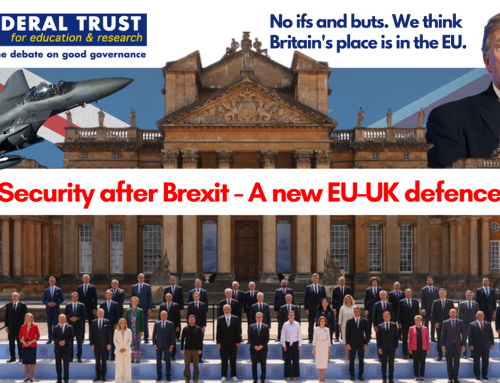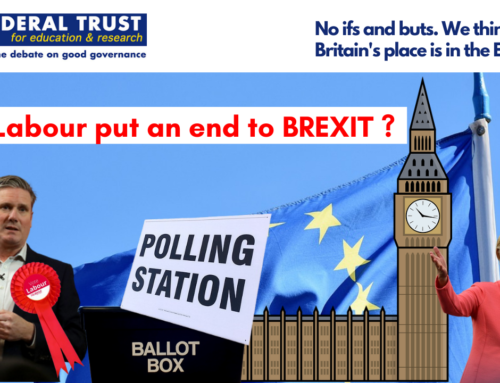What now? Options for Brexit – And a cry for help
 by Andrew Duff (Former Member of the European Parliament; Visiting fellow, European Policy Centre)
by Andrew Duff (Former Member of the European Parliament; Visiting fellow, European Policy Centre)
15 June 2017
This paper was first published by the European Policy Centre, Brussels.
Click here to download the publication in pdf format.
In this paper, Andrew Duff reviews the intended and unintended consequences of the results of last week’s general election. He argues that:
- Since both Labour and Conservatives campaigned to complete Brexit, there will be no more talk of the possible revocation of Article 50. Brexit does indeed mean Brexit.
- Now Brexit is free from the shadow of immediate electioneering. And the new composition of the House of Commons has improved the chances that if there is an Article 50 treaty it will be approved.
- The unintended consequence of the snap election has been to make a softer Brexit more likely. Mercifully, we should not hear again that “no deal is better than a bad deal” as a bust up of the Article 50 talks would lead to the collapse of the May government and the holding of another general election, much-feared by the Conservative party.
Following the outcome of last week’s election, Andrew Duff analyses what needs to be done on both sides of the Channel to ensure a successful Brexit negotiation. He argues that:
- The Article 50 talks will not and cannot succeed unless the secession treaty refers to the framework of the UK’s future relationship with the EU. In practice, this means that Britain’s future place in Europe has got to be defined and agreed during the next six to nine months.
- The better choice for Britain would be to initially remain a member of the EU customs union until a new and deeper relationship can be negotiated. Everyone on the island of Ireland would be satisfied that the Northern Ireland border with the Republic could remain soft.
- A “deep and special partnership” between the UK and the EU – or Accord would basically be a comprehensive free trade agreement (building on the customs union, but widened to embrace services) plus political collaboration in both internal and external security matters. A useful template is the 2014 association agreement with Ukraine.
- Once the future framework is so defined, the transition agreement will need to do three things: to oversee the phasing out of the UK’s membership obligations to the EU (and vice versa); to iron out unforeseen problems arising from Brexit but not included in the Article 50 treaty; and to prepare for whatever comes next.
- The EU’s leaders could help things along by responding positively to a reconstructed Theresa May. A friendly steer here from President Tusk and a firm pull there from President Juncker towards guaranteeing Britain’s future as a European country could make all the difference. We British are unlikely to manage this on our own if left to our own devices and desires.




